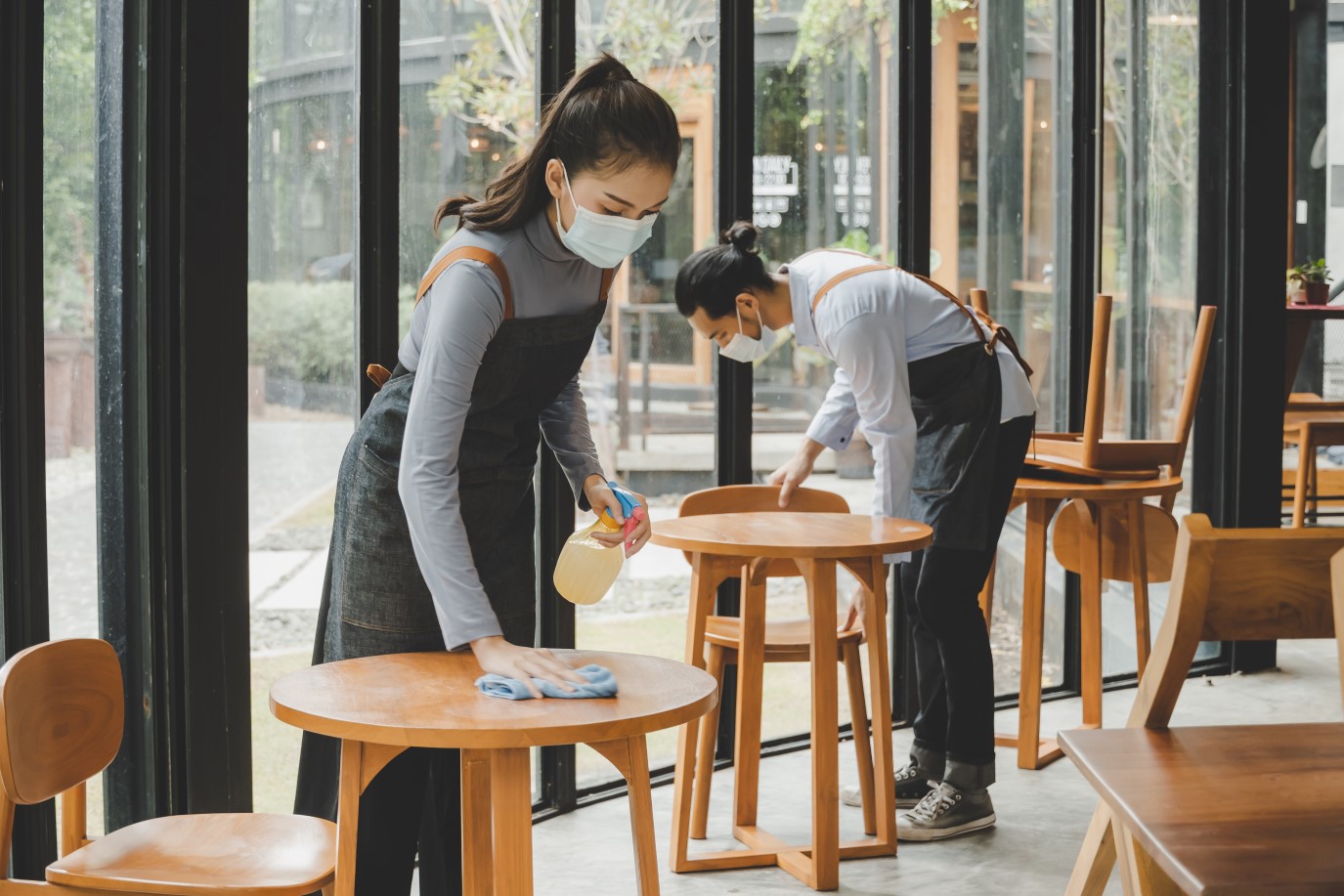We know the virus that causes COVID-19 normally spreads from person to person by direct contact, touching contaminated surfaces, and through breathing in airborne droplets produced when infected people cough, sneeze, or breathe. Stopping any of these pathways helps to break the chain of infection. This is why good personal hygiene, surface disinfection, social distancing, and wearing masks and other PPE are so important.
This article lists some of the important precautions we can take to help stop the spread of the virus.
We must all practice preventative hand hygiene whether or not we have symptoms.
To do this we should wash our hands frequently with soap and water or use an alcohol based hand rub. We must also make sure that frequently touched surfaces are well cleaned and disinfected.
Always wear a mask if you might be infected or if you are caring for a sick person. Recommendations for the use of masks by the general public will be different in each country: we advise you to follow your local/national recommendations or the recommendations of the World Health Organisation (WHO) or the European Centre for Disease Prevention and Control (ECDC).
The main symptoms of COVID-19 are fever, trouble breathing and a cough but they are not always present. Other common symptoms of Covid-19 include chills, muscle pain, headache, sore throat, and a loss of taste or smell. All individuals with symptoms of respiratory illness should be tested and removed from work until 72 hours after symptoms stop and at least seven days after the symptoms started.
SARS-CoV-2 is an enveloped virus, a type of virus that is generally easy to kill. Hand hygiene products and surface disinfectants which meet the international EN14476 virucidal standard (either fully virucidal or limited virucidal - eg effective against Vaccinia virus) are effective against enveloped viruses.
Personal safety measures
The guidelines below ensure personal safety in an outbreak situation. Everyone living where there is an identified local risk should follow them. They will help to stop the virus spreading from person to person.
Cleaning our hands
We must all practise good hand hygiene at key points and times to disrupt the transmission of disease to others. This includes immediately upon arrival at work, after touching contaminated surfaces, and after contact with other people.
- Wash with soap and water. There is no substitute for traditional hand washing - it is very effective at physically removing dirt and germs.
- Sanitise your hands with an alcohol based hand rub that meets the EN14476 standard if hand washing is not possible - you can also use an alcohol hand rub in addition to hand washing as an extra precaution in case any virus is still on your hands. Alcohol can kill the germs on your hands but it cannot clean them. If your hands are soiled, you must perform a full hand wash.
Personal hygiene etiquette
- Cover your nose and mouth with a tissue when you cough or sneeze. Dispose of the tissue in a suitable receptacle and then wash your hands or use an alcohol based hand rub. Never touch your eyes, nose, and mouth with unwashed hands.
- Avoid close contact with infected people.
- Use a suitable mask whenever required (following local/national recommendations). Dispose of masks after use and then wash your hands or use an alcohol based hand rub. Never share your mask.
- Discard disposable PPE after use and then wash your hands or use an alcohol based hand rub.
- Collect reusable PPE (e.g. aprons) in a closed water-soluble bag immediately after use so that it can be handled safely and washed properly. Wash your hands or use an alcohol based hand rub as soon as you have finished.
Instructions for cleaners
Always wash your hands thoroughly with soap and water or use an alcohol based hand rub before putting on PPE.
- Always observe special contact precautions - this will include using an apron with sleeves and gloves.
- Masks and face protection are only needed if splashing to the face is likely (as with normal enhanced cleaning precautions).
- If your PPE becomes contaminated remove and dispose of it safely. Wash your hands or use an alcohol hand rub before you put on fresh PPE.

Environmental hygiene recommendations for enhanced cleaning/disinfection:
- Implement a standardized disinfection protocol for frequently touched surfaces.
- Always use disinfectants that are properly certified with the right efficacy claims. Disinfectants that meet the requirements of the EN14476 (either fully virucidal or limited virucidal - eg effective against Vaccinia virus) are effective against enveloped viruses like SARS-CoV-2.
- Use disinfectants that are safe for people and surfaces.
- Clean any rooms unaffected by SARS-CoV-2 (Coronavirus) before moving on to contaminated areas.
- Focus on high-touch surfaces such as door handles, handrails, toilet flush and sink handles, light switches, etc.
- Remove PPE only in cleaned areas and do not distribute them elsewhere. Collect and decontaminate reusable PPE before reuse. Disposable PPE should always be discarded safely after use.
- Reusable cleaning cloths should be placed after use in water soluble bags with soiled linen ready for washing in a suitable approved laundry process to disinfect against SARS-CoV-2.
- To download instruction guides and wall charts relevant for your facility click here.
